A hematologist is a highly trained medical specialist who has attained training in treating diseases related to blood primarily. Secondarily, they specialize in disorders related to blood components, bone marrow, blood-forming organs, and the lymphatic system.
They treat various malignancies and abnormalities related to the disorders formed within blood due to blood deficiency, or due to the inability to clot blood. Common blood disorders treated by hematologists include anemia, hemophilia, thalassemia, and blood cancers such as leukemia, lymphoma, and myeloma.
A hematologist will be expected to examine in detail the physiology, history, etiology, characterization, cure, prognosis, and prevention of disorders related to blood and blood components.

Give your prescription pad a wonderful and professional look by using any of these formats, designed specifically for Hematologists and people related to the Hematology Department. Each of these designs is unique and laid out with vector graphics related to hematology.
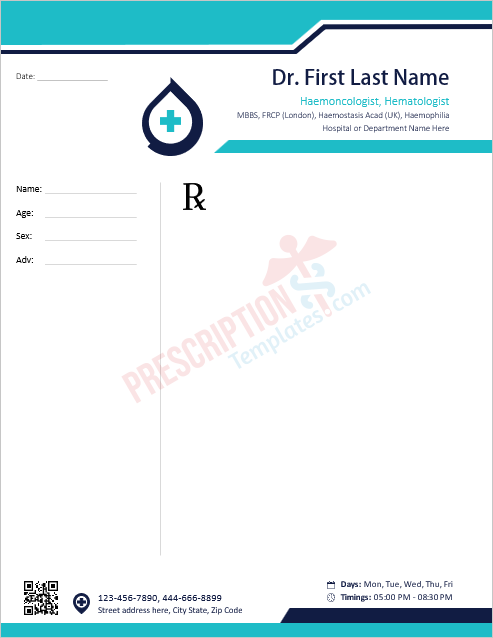
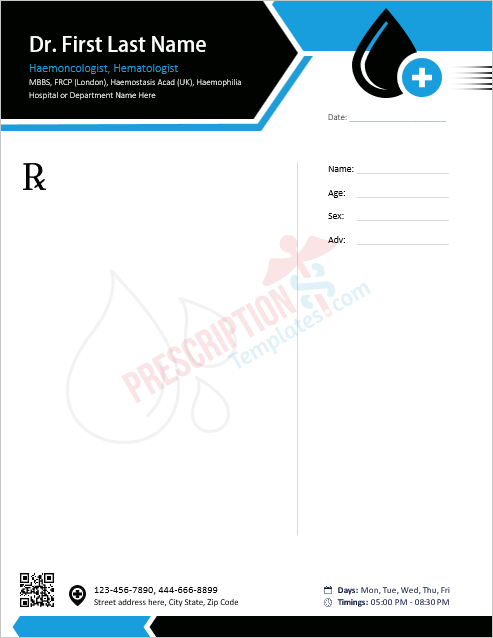
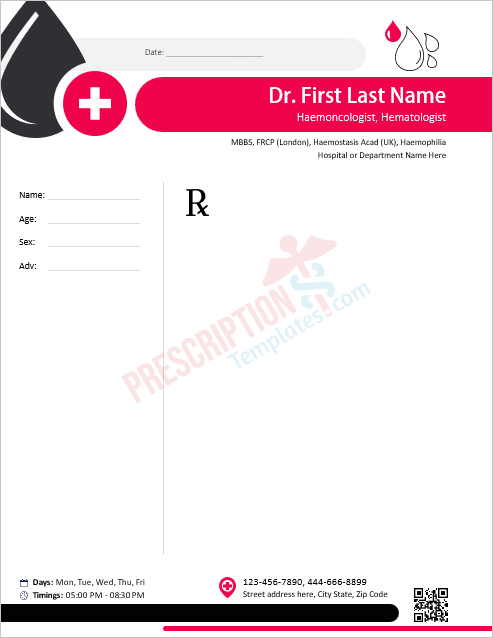
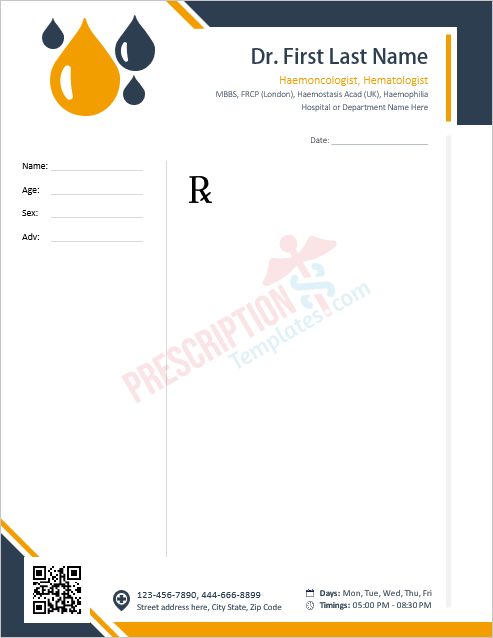
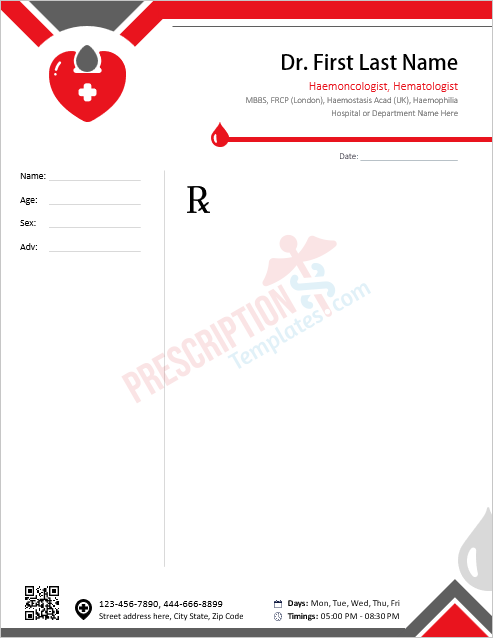
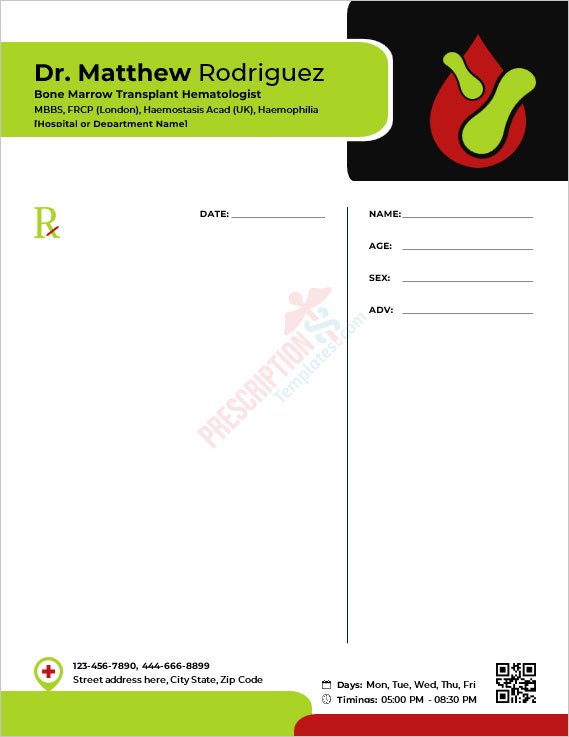
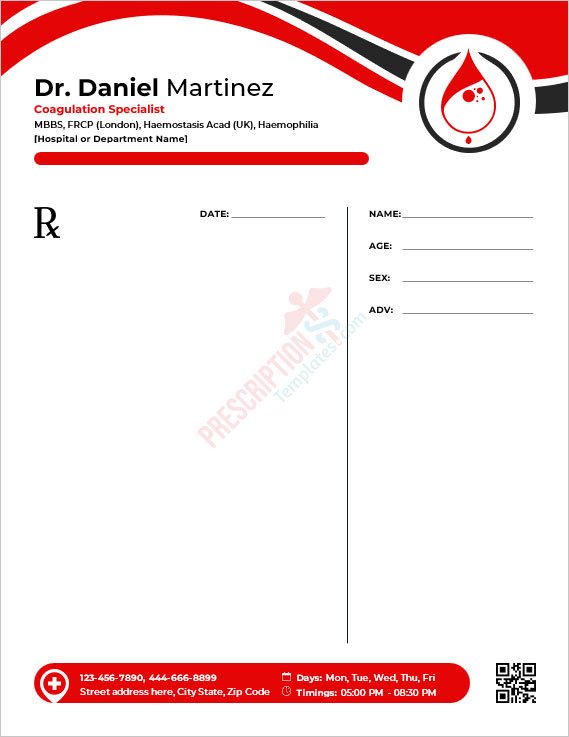

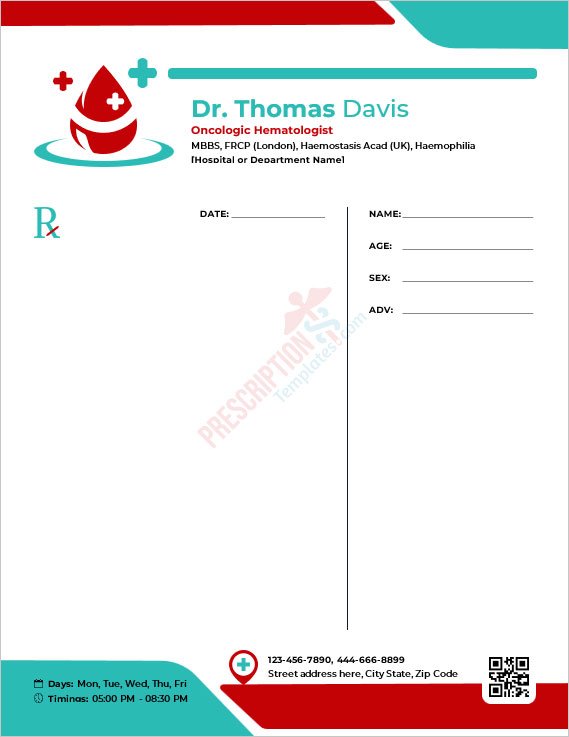
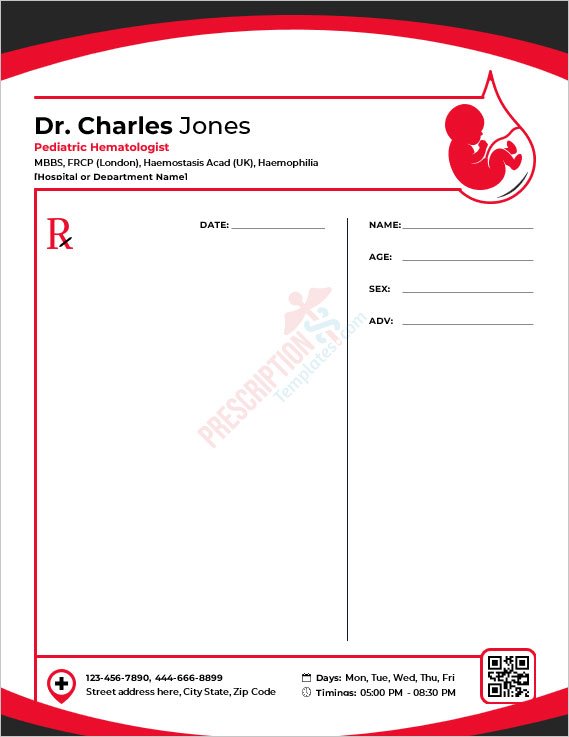
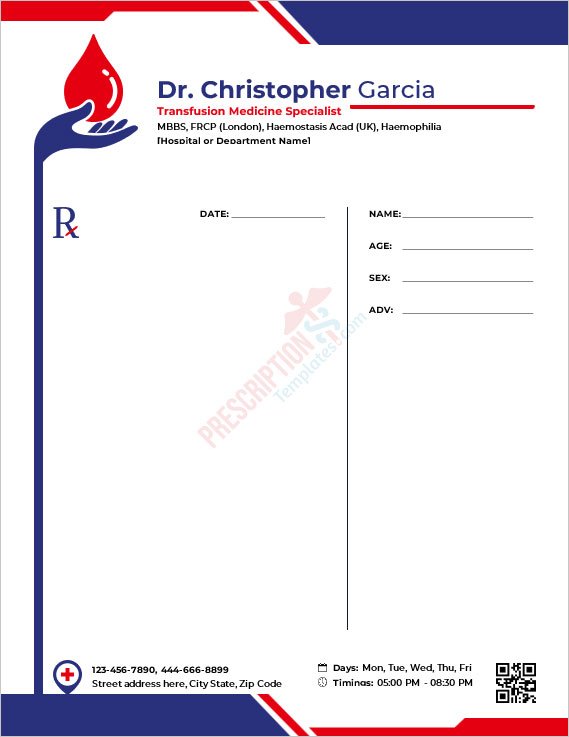
A hematologist has more to deal with in direct patient care matters and in the diagnosis and management of hematologic disorders. However, a hematopathologist has taken an additional degree in pathology. Their duty is to deal with the diseases of the blood and additionally focus on the blood-forming organs, tissues, their physiologic functions, the lymphatic system and the lymph nodes, the thymus, and the spleen.
They practice in laboratories and examine the blood components, tissues, and other parts with the help of microscopic examination and laboratory-performed tests.
Conditions related to blood are highly diverse and impact almost all parts of the body. These leave their impression on one’s everyday life making it hard to function in normal life. Therefore, once your general physician diagnoses that you have a blood deficiency, blood clotting, or infected blood disorders he/she will refer you to a blood specialist for extra care.
The cases due in which you are very likely to be asked to see a hematologist include:
A hematologist might be found in a private clinic, a public hospital, a blood bank, a laboratory, etc. In a diagnostic setting, they are expected to run the patient through a number of testing procedures to examine their condition. Blood CP or blood complete picture is a thorough test that gives your hematologist an idea of all three types of blood cells. Prothrombin tests are also performed for bleeding and blood clotting disorders.
The hematologists then work in close coordination with hematopathologists, oncologists, and radiation experts to provide preventive care to patients. When working in blood banks, hematologists are expected to look after the blood supplies and storage.
← Previous Article
11 Customizable Prescription/Letterhead Templates for Pharmacists